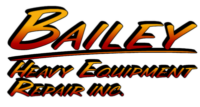How Often Do Hydraulic Fittings Need Maintenance?
Safety is always important in the workplace, especially if you’re working around heavy machinery all day. Many machines use hydraulic hoses to move liquids under very high pressure, and these hoses can potentially pose a safety hazard if they’re not properly maintained. A solid preventative care program in Lexington, OR should always include a thorough inspection of your hydraulic fittings. Here are three key things to know about hydraulic fitting maintenance.
Know when to inspect hydraulic hoses
You should regularly inspect every part of your hydraulic hoses to keep up with preventative maintenance. As a general rule, you should inspect any stationary equipment around every three months. The general three-month rule also applies for mobile equipment, except you also need to evaluate exactly how much you use the equipment. When you’re close to hitting 400 hours of use, it’s time to do an inspection.
You also need to take some other factors into account as you plan a preventative maintenance program. Consider your location—if your equipment is operating in extreme temperatures, make it a point to examine all components of your hydraulic hoses on a more frequent basis. Always keep a detailed log of all inspections and repairs so you’re able to monitor maintenance trends and general problem spots.
Recognize the signs of hydraulic hose failure
Pay attention to how your equipment sounds, looks and feels as you’re using it. Since you likely use your equipment frequently, you’ll be able to detect if something’s off. Rely on your eyes, ears and nose to be your inspection tools. If you notice anything out of the ordinary, it’s best to consult the professionals. An experienced technician is able to spot early warning signs of hydraulic hose failure. A technician should inspect hose covers and connectors to look for any damage and perform a complete hose and hydraulic fitting inspection. This should be part of your regular preventative maintenance plan, helping you identify any issues or weaknesses before a failure.
Take a close look at the fittings
Your hose connectors play a vital role in keeping you safe as you use heavy machinery. During hydraulic fitting maintenance in Lexington, OR, a professional technician performs a hydraulic fitting inspection to check your hose connectors for cracks, corrosion and any other damage. A damaged connector will inevitably lead to leaks—or worse, to a burst hose—which is why you need to spot and address these problems immediately. Keep in mind that stretching a hose too tightly can cause the unit to burst at the fitting—perform a careful inspection to make sure this never happens.
Working with heavy machinery can be dangerous, but with the right care and maintenance, you’re able to safely go about your day-to-day business. Even during economic downturns, you should never skimp on preventative maintenance—it can actually save you money in the long run. If you stick to a regular inspection and maintenance schedule and rely on the help of the professionals when necessary, you can feel confident that your hydraulic hose systems are safe and efficient.
To schedule an appointment for a hydraulic fitting inspection in Lexington, OR, reach out to the team at Bailey Heavy Equipment Repair, Inc. today.
